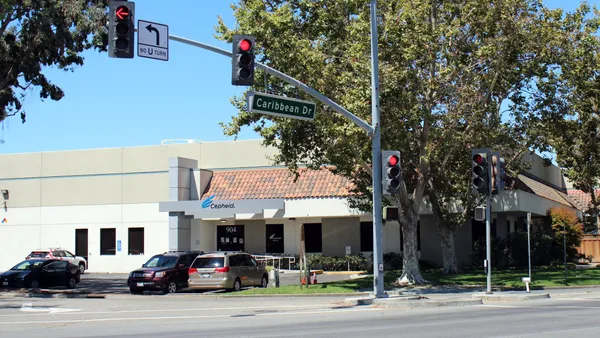Dive Brief:
- Incyte Corp. and genomic profiling company Foundation Medicine announced an agreement to develop a companion diagnostic for pemigatinib, Incyte’s FGFR1/2/3 inhibitor for patients with cholangiocarcinoma, or bile duct cancer. The collaboration includes regulatory support and commercialization efforts and is expected to expand into additional companion diagnostics.
- The first goal is to develop a companion diagnostic for testing of stage IV disease in bile duct cancer patients, with the aim of reducing morbidity and mortality, Incyte said.
- The pemigatinib companion diagnostic is expected to be incorporated into Foundation Medicine’s FDA-approved comprehensive genomic profiling assay and broader platform known as FoundationOne CDx.
Dive Insight:
It is becoming more common for drug manufacturers to develop a companion diagnostic along with the drug itself. Foundation Medicine has developed a series of diagnostic tests that can identify specific mutations in a tumor, helping to match patients with treatments targeted to their own molecular make-up. The FoundationOne CDx assay is approved as a companion diagnostic for 17 treatments across five cancer types.
In June, Swiss pharma Roche announced it would pay $2.4 billion to acquire the remaining stake in Foundation Medicine it did not already own, in a big bet on the promise of personalized cancer medicine.
Incyte is evaluating pemigatinib in patients with cholangiocarcinoma as part of the Fibroblast Growth Factor Receptor in Oncology and Hematology Trials clinical development program. "There is an urgent need for a novel, biomarker-based, targeted therapeutic approach for patients with cholangiocarcinoma," Steven Stein, Incyte’s chief medical officer, said in a statement.
The company said it will present initial data from the study at the European Society of Medical Oncology meeting in October in Munich.
Pemigatinib binds to and inhibits FGFR1/2/3, which in turn inhibits proliferation in FGFR1/2/3-overexpressing tumor cells. FGFR plays a key role in cellular proliferation, migration and survival.
Phase 2 studies evaluating the safety and effectiveness of pemigatinib in several FGFR-driven malignancies are underway.










